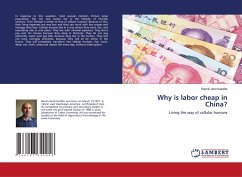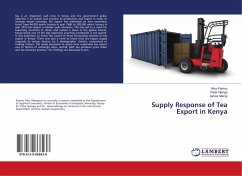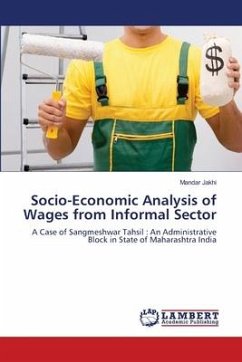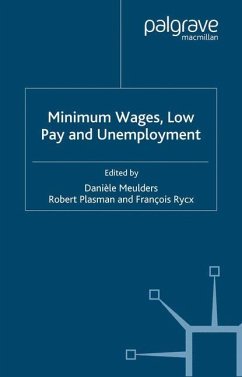
Ripple Effects of Minimum Wages and Response of Labour Market in Kenya
Versandkostenfrei!
Versandfertig in 6-10 Tagen
47,99 €
inkl. MwSt.

PAYBACK Punkte
24 °P sammeln!
Wages are important factors in the socio-economic life of any society. Workers and their families depend almost entirely on wages for livelihoods. For employers, wages constitute an important component of the cost of production and a key determinant of enterprise competitiveness. At national level, wage levels are important in determining macro-economic stability and equity. Minimum wage fixing is a key wage determination approach. The use of minimum wages as a benchmark for wage determination contributes to the existence of ripple effects on other wages, and hence distortions in the labour ma...
Wages are important factors in the socio-economic life of any society. Workers and their families depend almost entirely on wages for livelihoods. For employers, wages constitute an important component of the cost of production and a key determinant of enterprise competitiveness. At national level, wage levels are important in determining macro-economic stability and equity. Minimum wage fixing is a key wage determination approach. The use of minimum wages as a benchmark for wage determination contributes to the existence of ripple effects on other wages, and hence distortions in the labour market. This book is aimed at enhancing the knowledge and understanding of students and policy makers of the ripple effects of minimum wages on other wages, and the response of the Kenyan labour market to the ripple effects. It also focuses on assessing the effectiveness of minimum wage enforcement mechanism in Kenya using different approaches. This is important since the effectiveness of any law or policy framework is highly dependent on its enforcement and level of compliance.












